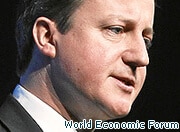David Cameron has placed redefining marriage among his proudest achievements, as he announced his resignation today as Prime Minister.
Speaking outside 10 Downing Street following the vote to leave the European Union, he said same-sex marriage was one of the “great steps” this country had made in recent years.
His move to introduce same-sex marriage in 2013 was highly controversial, with two-thirds of a million people signing a petition against the plan.
‘Very proud’
David Cameron said he was “very proud and very honoured to have been prime minister of this country for six years”.
He added that the country had made positive moves, including “enabling those who love each other to get married whatever their sexuality”.
Labour leader Jeremy Corbyn praised David Cameron over gay marriage, saying he was “very brave” and had “faced down his own party” on the issue.
Saddened
The Christian Institute’s Deputy Director Humphrey Dobson said: “Whatever your view of David Cameron’s premiership it is saddening that he has chosen to highlight this deeply controversial issue as his legacy.
“We believe that if same-sex marriage had been put to a referendum it would have been defeated, but he chose not to give the British people a say on the redefinition of marriage.”
In 2006, David Cameron said marriage was important whether it was between “man and a woman, a woman and a woman or a man and another man”.
Three days before the 2010 General Election, David Cameron told Sky News he had no immediate plans to legalise same-sex marriage.
Marriage petition
Despite this, the Coalition Government introduced a Bill to redefine marriage, and in February 2013 it won a decisive vote on the issue.
More than half of Conservative MPs voted against Mr Cameron, with the Coalition Government having to rely on the opposition to win.
Many people voiced concern about the plans, with over 650,000 people signing a Coalition for Marriage petition against the proposal.
The Marriage (Same Sex Couples) Act received Royal Assent in 2013, and Mr Cameron has since repeatedly spoken of his pride in the law.

